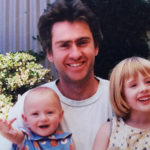As time passes The Holocaust of World War II moves further into the pages of history. The tragedies and atrocities are at risk of becoming facts, figures and statistics on a page taught to disinterested students who would rather be at the beach than in a stuffy classroom.
Eighty-one-year-old human rights activist Halina Wagowska counters this with her autobiography, The Testimony.
At ten years of age Halina lives the blissful innocence of a happy childhood with loving parents, she reflects on how those early years develop the resilience that will get her through the next five years enduring unimaginable horrors.
The Testimony is structured into snapshots where Halina deflects attention from herself by devoting each chapter to individuals who crossed her path. Stasia, the Gentile nanny so devoted she joins the family in the ghetto. Frieda, the intelligent scholar who urges survival will mean testifying to what they experienced for the rest of their lives. Sasha, the Russian soldier, who rescues the nearly-dead Halina and nurses her back to health providing her with the first kindness she had experienced for a long time.
There is a sense Halina has kept some of the horror she experienced to herself, although what she shares will cling to your thoughts for days afterwards. The image of a child responsible for carting bodies from the gas chambers to furnaces then lugging the buckets of ash and bone to the nearby swamp is haunting.
However, her youth also provides her with adaptability, a quickly growing sense of rat-cunning, and an ability to focus on the immediate. When the adults around her become overwhelmed by the big picture view of the situation Halina struggles to keep them alive.
Halina continues her story after the war ends and poignantly documents how peace did not necessarily bring joy. Alone and uneducated the teenager must create a new life for herself.
Arriving as an immigrant in Australia she works as a cleaner, studies and ultimately enjoys a career in pathology. The experiences of her formative years, and the influences of those she loved and lost, shape her commitment to human rights, working tirelessly for Aboriginal education, homeless students and bioethics.
The Testimony provides us with a valuable of record of the long-term impact of the Holocaust and a moving personal retrospective paying tribute to those who aren’t here to tell their stories.
Review originally written for the Hardie Grant Book Club.





wow, sounds like a tough and important read. her resilience as a child was so important. thanks for sharing!
It sounds fascinating. I’m sorry there are stories like this to tell, but they do need to be told for healing’s sake.
The Testimony sounds like a fascinating and moving read. Thank you for sharing your review
Jayne @ The Australian Bookshelf
My goodness. Sounds like a confronting read. Thanks for the review.
It was very moving.
I just read the Zookeeper’s wife. I recommend it. I’m a Jewish educator in my town and have blogged about this topic, how to keep this topic relevant to our next generation of youth. One way my community is educating our youth is by putting on plays which they act in, such as “I never saw another butterfly” and another play written by a local playwright. We also have community teen trips to the US Holocaust Museum, and ultimately, a trip to the concentration camps/Israel with Jewish youth from US/Israel. I like the style of your blog and will be back!
Thank you. I love the sound of the work you are doing with the young people in your community.I’ll have a look for the Zookeepers Wife.